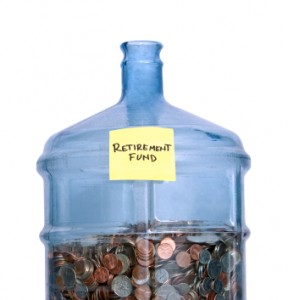Posted on: May 19th, 2010 by Amy Bolger
 So you’ve paid off all of your debts and climbed out of the financial hole, now what? Rebuilding your credit is a great next goal for you. Anyone who has the strength of character, patience, and commitment to climb out of debt should have no problem tackling a low credit score once you have guidelines. I’m sure your road to being debt free was a long one, so don’t expect the rebuild to be quick either.
So you’ve paid off all of your debts and climbed out of the financial hole, now what? Rebuilding your credit is a great next goal for you. Anyone who has the strength of character, patience, and commitment to climb out of debt should have no problem tackling a low credit score once you have guidelines. I’m sure your road to being debt free was a long one, so don’t expect the rebuild to be quick either.
Free help is available to assist you in improving your credit. MyFICO.com, operated by the credit score companies themselves will provide a lot of great information, as well as the opportunity to blog with others who are on the same path as you, just further along. FICO monitors these blogs for offensive content, but does not interfere with any decent posting a person wants to make. I don’t know of too many companies that allow unrestricted comments about their product on their website for public viewing and comment. Another great resource is Credit Repair Kit for Dummies, by Stephen Bucci. You can probably find a copy a your local library. This book will help you put your credit score in context and give you the inside scoop on how they work and what you can do to help yourself.
Repairing your credit is a great way to begin planning for your future. When you decide it’s time to purchase a home or apply for a loan, be sure you check your credit reports first. You don’t want to have inaccurate negative information on your reports sabotaging your hard work improving your credit. And in the future, remember how hard it was to get out of debt and make a financial plan for yourself to stay that way.

Posted on: May 10th, 2010 by Amy Bolger
 Retirement often signifies the end to certain forms of income; but it also signifies the cessation of certain types of expenses. For example, the best thing about a mortgage is that it eventually gets paid off. The removal of this expense is a huge weight lifted off of your shoulders, and can mean the difference between positive and negative cash flow in your retirement. Of all debts, this is a big one; you should speak with a financial adviser about devising a realistic plan to have your mortgage paid off before you retire.
Retirement often signifies the end to certain forms of income; but it also signifies the cessation of certain types of expenses. For example, the best thing about a mortgage is that it eventually gets paid off. The removal of this expense is a huge weight lifted off of your shoulders, and can mean the difference between positive and negative cash flow in your retirement. Of all debts, this is a big one; you should speak with a financial adviser about devising a realistic plan to have your mortgage paid off before you retire.
Houses aren’t the only thing that are eventually paid off. If you aren’t one of those people who trades their car in every couple years or leases, this debt will also eventually be eliminated from your budget. Upon entering retirement, you will have to determine if your savings and income will allow for you to continue to make car payments or lease payments throughout your retirement or if you must buy a car and hang onto it throughout.
During your working years you probably will either opt to put 15% of your earnings away in some sort of employee sponsored retirement plan, such as a 401(k), or allocate your money each month into a traditional or Roth IRA, whether it be through an investment manager or yourself. All of these qualified plan contributions will cease upon retirement, although you can continue to contribute to an IRA to age 70 1/2 and beyond. All of your income from retirement forward will be entirely yours and you will no longer be expected to take a portion of it out for saving.
Another key savings you will see in retirement is life insurance. For those of you that have cash value policies, there is a very good chance that you will have it paid off by the time you retire. For those of you with term policies, you may no longer need them and it may become too expensive to continue the coverage. In either case, it means an end to monthly payments and/or annual premiums. This can free up thousands of dollars, depending on the amount of coverage involved.
The biggest goal you and your financial adviser should have prior to retirement is to pay off any and all miscellaneous debts. Student loans, credit cards, and other consumer debts constitute a large portion of most household budgets. The removal of credit card debt in particular allows retirees to get out from under obscene interest rates and direct their monthly payments toward other obligations.
So what’s the bottom line? The elimination of some or all of the debts listed above can make a huge difference in the amount of income that is required to make ends meet. Many retirees are able to live on Social Security plus their retirement savings with relative ease if their major debts are paid off. Make sure you are one of these people and Happy Retirement!

 So you’ve paid off all of your debts and climbed out of the financial hole, now what? Rebuilding your credit is a great next goal for you. Anyone who has the strength of character, patience, and commitment to climb out of debt should have no problem tackling a low credit score once you have guidelines. I’m sure your road to being debt free was a long one, so don’t expect the rebuild to be quick either.
So you’ve paid off all of your debts and climbed out of the financial hole, now what? Rebuilding your credit is a great next goal for you. Anyone who has the strength of character, patience, and commitment to climb out of debt should have no problem tackling a low credit score once you have guidelines. I’m sure your road to being debt free was a long one, so don’t expect the rebuild to be quick either.

